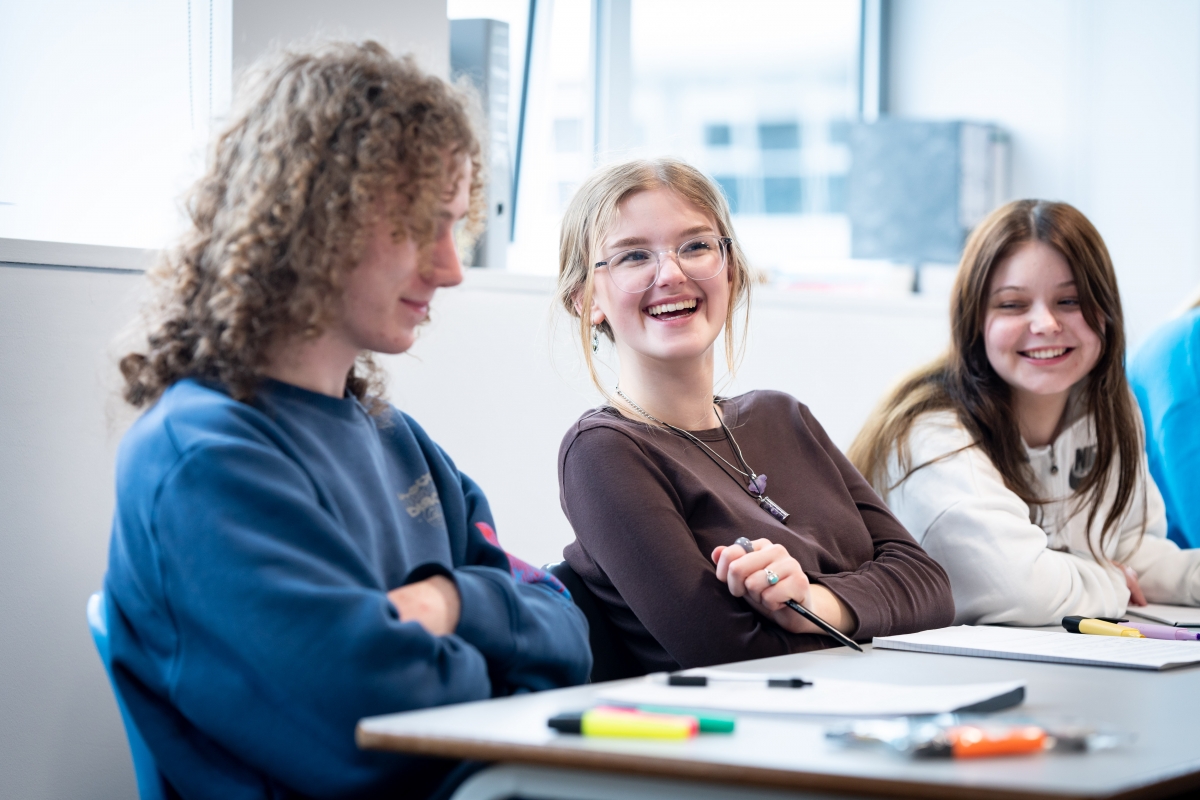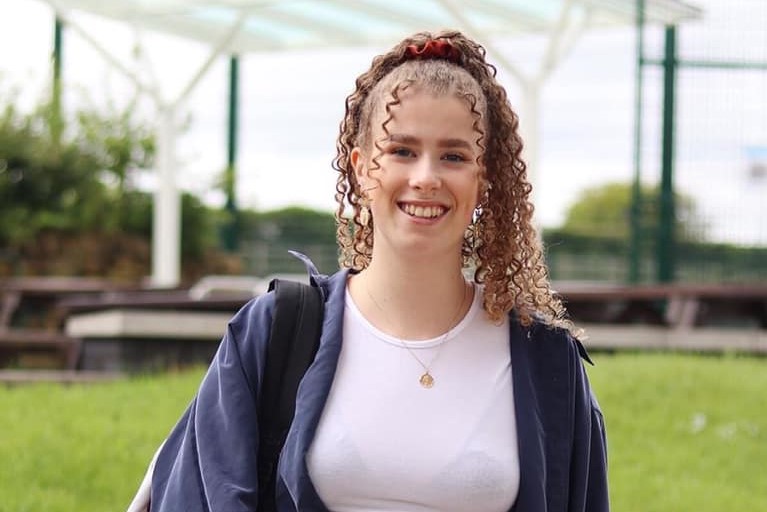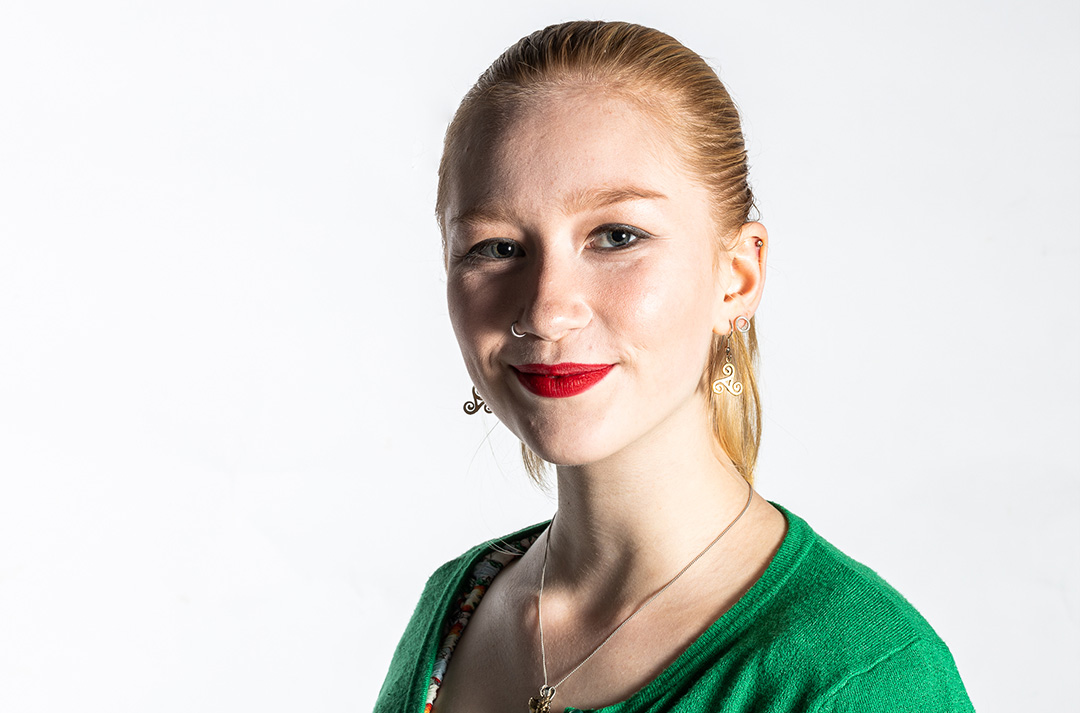A Level Philosophy of Religion & Ethics
You might not be quite sure what Philosophy is. Don’t worry, many people aren’t! Some students who were just as unclear at the start have progressed to Philosophy degrees at Russell Group universities. For those of you who don’t take a degree in Philosophy at the end of the course, the thinking skills that you will learn will be of great value to you in any field of study or employment.
Key information
Humanities / Social Sciences / Full Time / A Levels and Equivalent

Why choose this course?
Philosophy, Religion and Ethics addresses some of the big questions that face human beings:
What is the purpose of my life?
What am I?
What can I know?
How should I live?
Why should I do what is right?
What are my obligations to other people?
We try to take these problems seriously and attempt to find real answers to them. This means attempting to apply rigorous logic, finding the right types of evidence and evaluating possible approaches. It is not about sharing opinions; it is about the meticulous analysis of the problem and scrupulous attention to detail. Our classes often involve lots of discussion but in order to be able to discuss these ideas we have to read short but challenging texts. If you are the type of person who is accused of thinking too much, if Google can’t answer your questions and if you like spending time wondering whether your real life is the one in your dreams and that you are reading this introduction in your sleep then this course might be for you.
You will need to be prepared to take viewpoints seriously even if you disagree with them. It will be important for you to listen to points of view which you may not share and approach them with both a critical and respectful attitude. We will study Buddhism from first principles and no previous knowledge will be required. You must be prepared to undertake at least 4 hours of independent study per week.
The course has some topics which lead on from the GCSE in Philosophy and Ethics but we do not assume that you know about any religious traditions or ethical views in detail. You certainly don’t have to be religious to study for this qualification; it is equally suitable for students from all religious traditions and none. The course leads to the EDUQAS A Level in Religious Studies.
What will I learn?
The course will explore three areas of study:
The Philosophy of Religion - In this unit we will consider the types of evidence that are offered for belief in God, we will evaluate both this evidence and evidence offered for the rejection of religious belief. We will also consider the nature of religious argument by considering a number of possible approaches. An important part of the work is to think about the basis of our beliefs. Some philosophers believe that we can only rely upon the evidence of our senses but others point out that our senses can deceive us and search for something more certain.
Ethics - In this unit we will learn how to evaluate a number of different ethical theories as well as considering the extent to which we are free to make our own moral choices and are responsible for our actions. We will also consider whether religious faith is at the heart of ethics or whether we can form completely secular ethical theories. We will evaluate these contrasting approaches while considering the place of reason in ethical thought. Later we move on to a consideration of what sort of activity we are engaging in when we think about ethics and why its problems have proved so intractable.
Buddhism - We will learn about the Buddhist tradition in some detail, studying the lives and contributions of important religious figures as well as the important texts and practices that form the basis of this philosophy. We will also learn about different types of Buddhism and the history of Buddhist practice. We will begin our study of Buddhism by thinking about the central ideas of “no-self”, “impermanence” and “suffering” as well as looking at the life of the Buddha before moving onto a consideration of key texts and concepts. Later we will undertake a detailed investigation of differences between various schools of Buddhist thought, investigate Buddhism in the U.K. and Japan and look at the ways Buddha’s teachings have been reinterpreted from feminist and scientific viewpoints.
Assessment Arrangements
This course is assessed in 3 exams at the end of the second year. There will be one exam on each component, in which you are expected to write extended essays explaining and evaluating topics that you have studied.
Your achievement in this subject is dependent upon excellent attendance, punctuality and effort. You will learn in a friendly atmosphere, using a variety of assessment methods:
- You will be assessed regularly on written essay work that is conducted either as homework or under timed conditions in class and given feedback on your progress.
- Discussions are a vital part of our assessment process and you will be expected to contribute to those and to do the reading necessary for that contribution.
- You will review your own performance in 1:1 sessions with your tutor.
- You will undertake mock examinations in advance of your final exams.
Where will it take me?
This course can be combined effectively with almost any subject especially Law, Mathematics, Physics, Computing, Classical Civilisation and History.
Philosophy of Religion & Ethics is recognised as a respected entrance qualification by all universities, and employers are aware that it helps to develop an individual's ability to communicate, work with others and solve complex problems. Given the emphasis on ethics in this course it might be useful for those considering careers in Law or Medicine.
Information & Support
You are encouraged to read widely in support of your studies. Your lecturers will help to guide your reading and will supply extensive reading lists. You are expected to make cross curricula links with your other courses of study and stay up to date with ethical issues in the news.
What do I need?
You should be able to offer at least GCSE grade 5 in English Language or Literature and at least grade 4 in Mathematics plus at least three other GCSEs at grade 4 and above. It is not a requirement to have taken Religious Studies or PRE at GCSE. You will need to be a confident reader, able to write fluently and have good factual recall. Above all you should have a real interest in the subject.
Additional Information
Because the course will almost certainly be new to you, it is a very good idea to attend an open event to discuss your plans with the staff.
Awarding Body:
Eduqas – Religious Studies
To obtain more information about this course, please call: 01208 224000 or email enquiry@callywith.ac.uk



